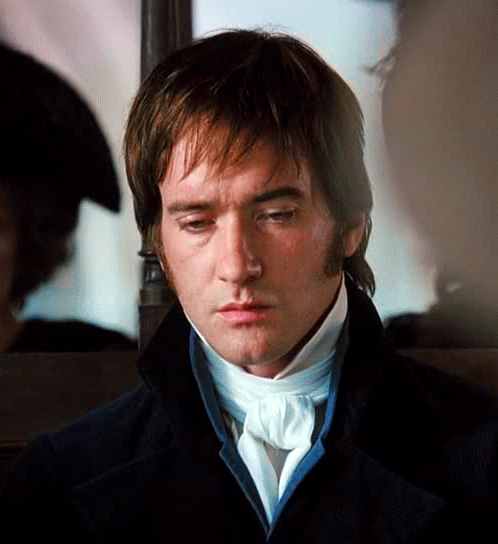I write papers, I have no blog material/time to write blogs, it only makes sense for me to post papers on here. Right? (If you disagree you can move along.)
Here is a response paper I wrote after rereading Pride and Prejudice for the umpteenth time.
Jane Austen’s Pride
and Prejudice explores a number of themes.
Most obvious is Elizabeth’s misinterpretation of Darcy’s actions. Along with others in the novel, Elizabeth feels
Darcy is proud and cold due to his unwillingness to participate in social events. Although the word is never used in relation
to the character, “shy” is a far better descriptor of Darcy.
Austen
lures her readers into agreeing with Elizabeth by only allowing them to view
Darcy through the eyes of Elizabeth and other characters. In Darcy’s introduction, “he was discovered
to be proud; to be above his company, and above being pleased” (Austen ch. 3). While the narrator pins Darcy this way,
without the description, readers can interpret Darcy’s actions as something
else entirely. “Mr. Darcy danced only
once with Mrs. Hurst and once with Miss Bingley, declined being introduced to
any other lady, and spent the rest of the evening in walking about the room,
speaking occasionally to one of his own party” (Austen ch. 3). Though the narrator leads readers to believe
that these are symptoms of pride, readers can indeed explain these actions in
other terms, most particularly shyness.
Darcy,
even, indicates that his antisocial behavior is a result of a shy
demeanor. After Bingley encourages his
friend to have a dance, Darcy refuses. “
‘You know how I detest it, unless I am particularly acquainted with my partner’
” (Austen ch. 3). His statement is
further emphasized by the fact that he only dances with women he knows at this
ball. Yet, readers are deceived because
Elizabeth and other characters continue to impress that Darcy is proud. Mrs. Bennet is particularly harsh when
discussing Mr. Bingley’s sociability. “That is my idea of good breeding; and
those persons who fancy themselves very important, and never open their mouths,
quite mistake the matter” (Austen ch. 9).
Mrs. Bennet does not suppose an disinclination to being social might be
a result of shyness. Because the idea is
never directly suggested to readers, readers are willing to agree with the
mistaken characters. This ultimately
assists in creating greater tension in the novel while still allowing for a
reasonable and happy ending.
Miss
Darcy, meanwhile, is allowed to be shy.
The narrator openly bestows this attribute on Miss
 |
| My favorite Darcy, enacted by Matthew Mcfadyen. |
reluctant to offer such an excuse for Darcy, or at
the very least imagined shyness impossible in a male figure, especially in one
of so high status. This passage offers a
hint to the readers, however, that their heroine has misled them.
Darcy’s
shyness is finally admitted in chapter sixty.
“ ‘What made you so shy of me, when you first called, and afterwards
dined here?’ ” (Austen) Elizabeth inquires.
Though only two instances are accounted for, the narrator finally allows
readers to rest in this small suggestion that Darcy has been shy, not proud,
all along.
In
relying on the opinions of other characters and the actions of Mr. Darcy alone,
Austen manages to trick her readers into believing that Mr. Darcy is indeed
proud. By doing so, the readers become
more engaged with Elizabeth as a character and are as blind to her faults as
Elizabeth. This carefully constructed
piece of Pride and Prejudice sets up
readers to be surprised by Darcy’s actual character as he acts the hero in
multiple ways.
Works Cited
Austen, Jane. Pride and Prejudice. N.p.:
n.p., n.d. Project Gutenberg.
Project Gutenberg, 5 Nov. 2012. Web. 22 Mar. 2013.
Book image courtesy of Novel Reaction.
Darcy image courtesy of Tumblr.

I, unfortunately, have never read "Pride & Prejudice" but have seen the movies several times. I understand that the point of the name of the book is to show the difference between the two characters. The fact that the book was written so long ago also shows a difference in the way things were perceived. I would be curious to see another book written today with the exact same story and see how the man particularly would be perceived. He would probably be seen as a "woos" and not a "real man". The woman would probably be well thought of because of a strong personality and she is able to speak and say things however she feels.
ReplyDeletethank you for this!
ReplyDelete